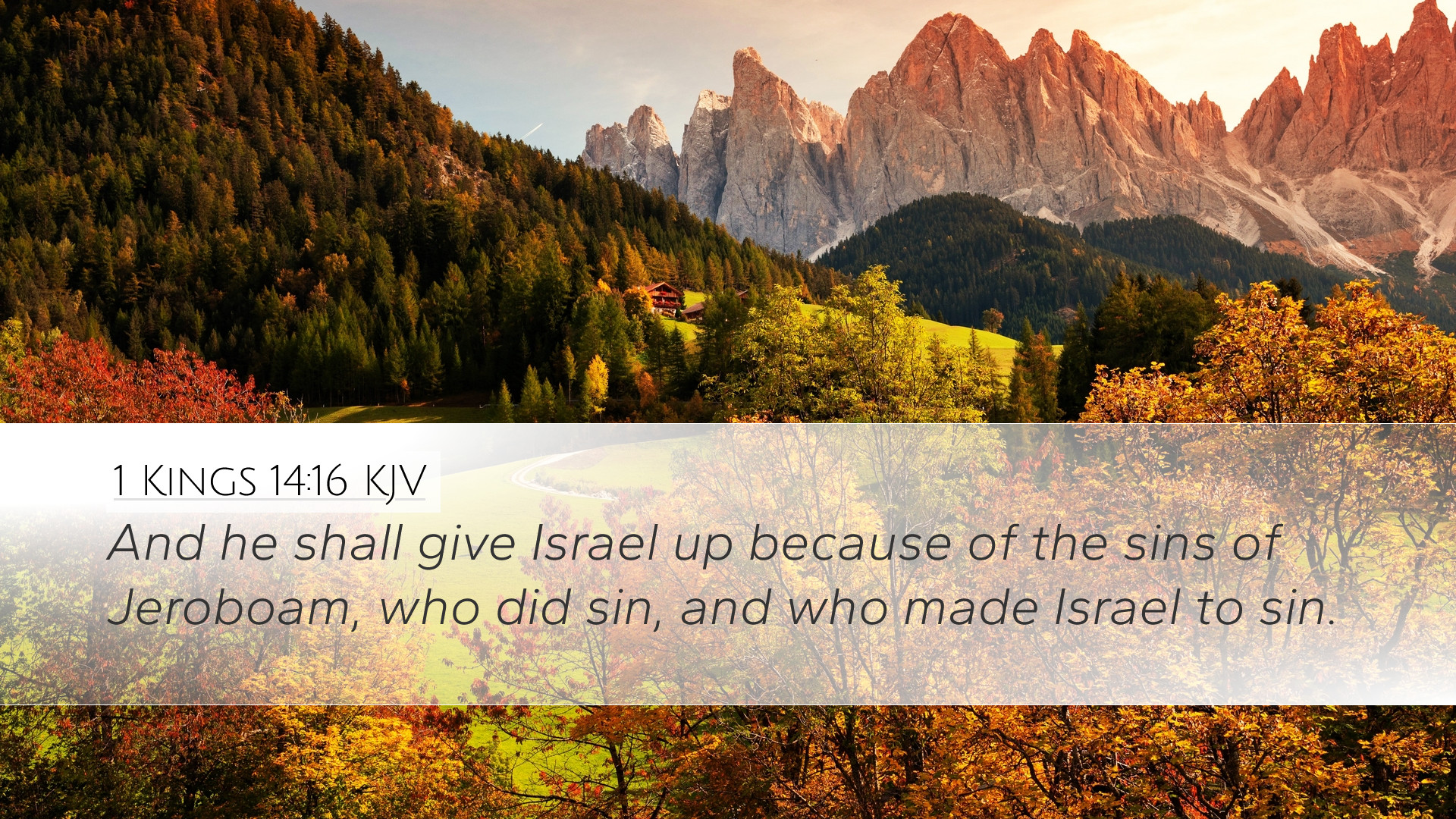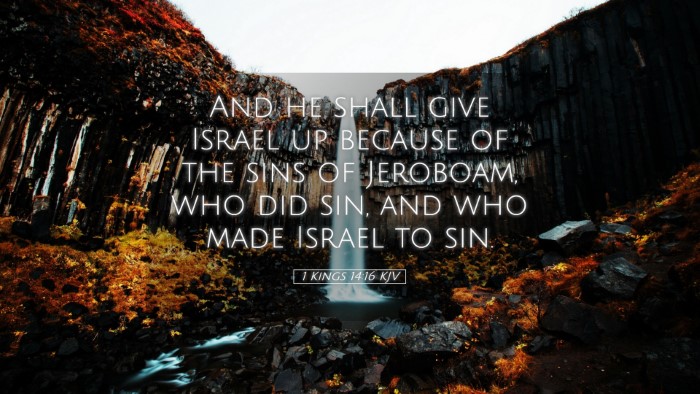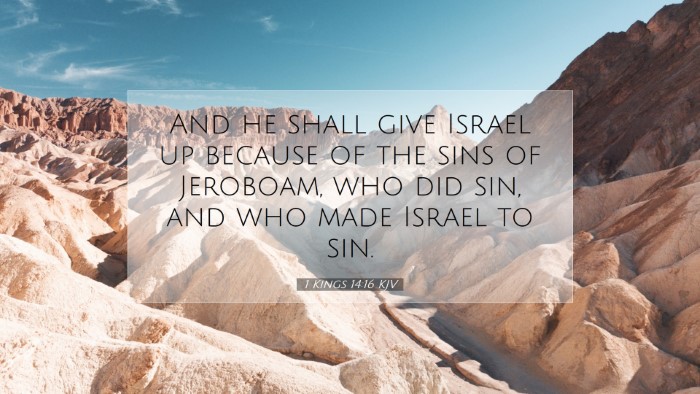Commentary on 1 Kings 14:16
Verse Context: 1 Kings 14:16 states, "And he shall give Israel up because of the sins of Jeroboam, who did sin, and who made Israel to sin." This verse reflects a critical moment in the history of Israel, highlighting the consequences of sin and idolatry.
Overview of the Historical Context
This verse is set against the backdrop of the divided kingdom, where Jeroboam, the first king of the northern kingdom of Israel, established practices that led the nation astray. The sins of Jeroboam, primarily his establishment of golden calves for worship, became a defining characteristic of the northern kingdom, resulting in spiritual and moral decline.
Analysis of Key Themes
- Divine Judgment: God’s judgment is omnipresent throughout the narrative. The mention of giving Israel up emphasizes that divine retribution is a direct response to rebellion against God’s commandments.
- The Role of Leadership: Jeroboam's actions deeply impacted Israel's spiritual state. Leaders are depicted as accountable not only for their actions but also for how they influence those they govern.
- Sins of Jeroboam: Jeroboam is depicted as a pivotal figure whose sins initiated a pattern of apostasy in Israel. His decisions led the people into idolatry, which was in direct violation of God’s covenant.
Commentary Insights
Matthew Henry: Henry notes that God’s judgment, as articulated in this verse, serves as a sobering reminder of the consequences of sin. He emphasizes that Jeroboam's sin was not just personal but widespread, leading the entire nation into moral corruption. The phrase "who made Israel to sin" suggests that there is a collective responsibility in sin, especially among leaders.
Albert Barnes: Barnes focuses on the theological implications of this passage. He argues that the abandonment of Israel by God is not a capricious act but rather a judicial response to persistent disobedience. He points out how Jeroboam’s idolatrous practices were intentional and deliberate. Barnes highlights the distinction between general sinfulness and the premeditated actions of those in authority.
Adam Clarke: Clarke provides a deeper historical and cultural context. He discusses the nature of Jeroboam’s idolatry, recognizing it as a significant departure from the worship prescribed by the Mosaic Law. Clarke’s commentary stresses that Jeroboam’s innovations in worship were attractive to the people, indicating the danger of adapting spiritual practices to be more palatable to the masses, thereby diluting the truth of God’s word.
Practical Applications
- Engagement with Scripture: Pastors and theologians need to engage deeply with scripture to understand the permanence of God’s standards against the fluctuating morals of society.
- Leadership Responsibility: Leaders in any capacity must recognize their influence on others. The consequences of their decisions extend beyond themselves, emphasizing the weight of responsibility.
- Vigilance against Idolatry: Just as Israel was led into idolatry, contemporary believers must remain vigilant against the subtle forms of idolatry that can permeate faith practices today, including materialism and secularism.
Theological Reflections
This verse raises significant theological discussions surrounding the nature of holiness, the seriousness of sin, and the character of God as both just and merciful. The reality that Israel would be given over because of its vile practices invites contemplation on how current church practices align with God’s expectations and covenantal promises.
Furthermore, it elevates the importance of repentance and the hope inherent in God’s mercy. While the text might suggest a finality in judgement, it also serves as an opportunity for introspection and a call to return to authentic worship.
Concluding Thoughts
1 Kings 14:16 is a potent reminder of the spiritual perils intrinsic to both personal and collective living. The cautionary historical narrative concerning Jeroboam’s leadership elucidates a broader principle: the dire consequences of leading others away from the truth of God's word. As leaders, believers, and theologians interact with this material, they are invited to reflect on their own worship practices and the influences they exert on their communities.


